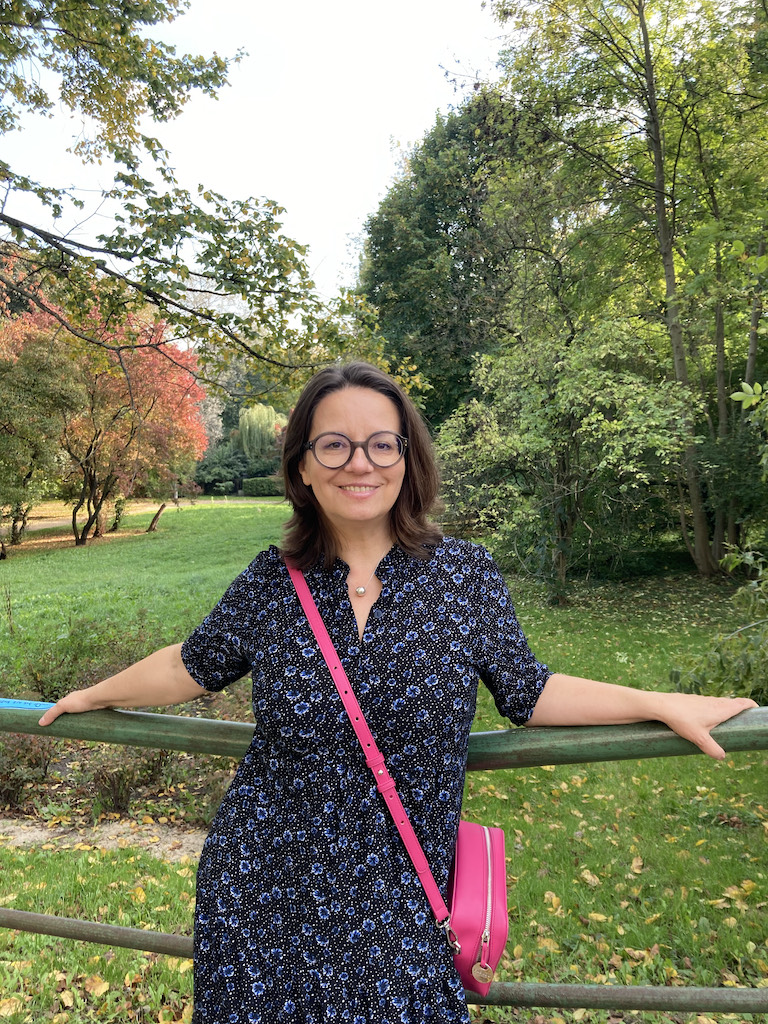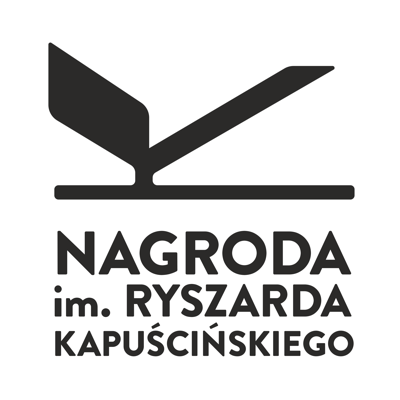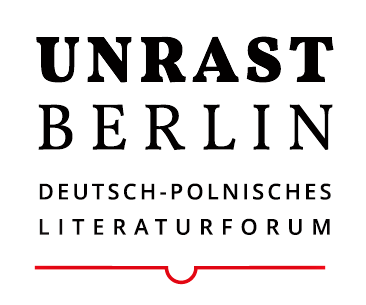Honor Podlasia - Michałowianki karmią "terrorystów"
„Koło Gospodyń Wiejskich „Michałowianki” ratuje honor Polski”- zdjęcie z takim podpisem umieściłam na Facebooku. Zrobiłam je w maleńkim miasteczku na Podlasiu blisko granicy z Białorusią, ostatnio masowo przekraczanej nielegalnie przez uciekinierów z Bliskiego Wschodu i Afryki. Polski rząd postawił im tamę w postaci drutu kolczastego. Według premiera Morawieckiego drut chroni przed „terrorystami”, „broni honoru Polski”. Mieszkańcy Michałowa jednak zamiast bać się migrantów zorganizowali dla nich w remizie strażackiej punkt pomocy, ogrzewalnię.
Rano, 9 października „Michałowianki” szykowały tu tradycyjne podlaskie potrawy. Nagle do drzwi zadzwonił drżący, płaczący młody mężczyzna, Kurd. Zmarznięty i wygłodniały. Kiedy ja dotarłam tam kilka godzin później był już wypoczęty, nakarmiony i rozpromieniony. Składał przed „Michałowiankami” ręce jak do modlitwy w geście wdzięczności i chciał klękać.
Na FB pojawiły się zaniepokojone głosy, czy na zdjęciu nie widzimy przypadkiem mielonych z wieprzowiną, że takie pomaganie to głupota, bo migranci to zwykle muzułmanie. Potwierdzam, są to mielone z wieprzowiną. Poza kadrem były jednak także inne potrawy. Ustaliłam, że panie nakarmiły gościa krokietami z kapustą i grzybami, ale on nie pogardził i bigosem z kiełbaską. Strażacy dodatkowo przynieśli mu z baru kebaba. Mężczyzna w podzięce złapał odkurzacz i wysprzątał wszystkie pomieszczenia w ogrzewalni.
Wschodnia Polska to najbardziej tradycyjna część kraju. Dlatego tak łatwo siać tu strach przed obcym. Ale tego strachu coraz mniej. Pomimo bariery językowej michałowianie porozumieli się z wędrowcą doskonale. To przykład na to, że jedzenie pełni nie tylko funkcję odżywczą oraz religijną, ale także społeczną.
Panie z KGW szykują teraz weki. Z pyzami nadziewanymi mięsem drobiowym, z gulaszem wołowym… Można będzie je odgrzać i zjeść na miejscu albo zabrać w teren dla potrzebujących. Da się je odgrzać nad ogniskiem, ale pewnie dobre będą i na zimno.
Ehre für Podlasie - Michałowianische Frauen füttern die "Terroristen"
„Der Landfrauenverein ‚Michałowianki‘ rettet die Ehre Polens“ – mit diesem Begleittext habe ich das Foto auf Facebook gepostet. Es entstand in Michałowo, einer podlachischen Kleinstadt unweit der belarussischen Grenze, über die seit kurzem Flüchtlinge aus Nahost und Afrika illegal nach Polen kommen. Die polnische Regierung hat gegen sie einen Wall aus Stacheldraht errichtet, der nach Ansicht von Ministerpräsident Morawiecki das Land vor „Terroristen“ schützen und „die Ehre Polens verteidigen“ soll. Doch die Einwohner von Michałowo fürchten die Flüchtlinge nicht, sie haben in einer Feuerwache einen Hilfspunkt mit Wärmestube eingerichtet.
Am Morgen des 9. Oktober waren die ‚Michałowianki‘ dabei, traditionelle podlachische Speisen zuzubereiten, als ein zitternder und weinender junger Kurde an der Tür schellte. Er war durchgefroren und hungrig. Als ich wenige Stunden später dort eintraf, ging es ihm schon besser, er hatte zu essen bekommen und strahlte. Zum Zeichen der Dankbarkeit faltete er die Hände wie zum Gebet und wollte vor den Frauen niederknien.
Auf Facebook fragten besorgte Kommentatoren, ob auf dem Foto nicht Frikadellen mit Schweinefleisch zu sehen seien und ob es nicht dumm sei, den meist muslimischen Flüchtlingen so helfen zu wollen. Ja, es waren Frikadellen mit Schweinefleisch, doch abgesehen davon gab es auch andere Speisen. Die Frauen hatten dem Gast Kroketten mit Kraut- und Pilzfüllung aufgetischt, aber er hatte auch das Bigos mit Wurst nicht verschmäht. Die Feuerwehrleute besorgten ihm außerdem noch einen Kebab. Zum Dank schnappte sich der Mann anschließend den Staubsauger und reinigte die Räume der Wärmestube.
Der Osten ist der traditionellste Teil Polens. Deshalb ist es hier leicht, Angst vor Fremden zu säen. Doch die Angst schwindet zusehends. Trotz der Sprachbarriere konnten sich die Michałower wunderbar mit dem jungen Kurden verständigen. Das ist ein Beispiel dafür, dass das Essen nicht nur eine biologische und religiöse, sondern auch eine soziale Funktion erfüllt.
Die Michałower Landfrauen bereiten jetzt Weckgläser vor – mit Geflügelfleisch gefüllte Kartoffelklöße, Rindsgulasch… Man kann die Speisen vor Ort aufwärmen und verzehren oder unter freiem Himmel kampierende Bedürftige damit versorgen. Sie können über einem Lagerfeuer aufgewärmt werden, aber sie schmecken sicher auch kalt.
Übersetzung: Bernhard Hartmann
Die renommierte polnische Reporterin Katarzyna Surmiak-Domańska ist zu Gast bei dem Deutsch-Polnischen Literaturforum UNRAST Berlin. Alle Informationen unter dem Link: www.unrast-berlin.de.
Honor of Podlasie - Michałowian women feed the 'terrorists'
“The Michałowianki Rural Housewives’ Circle saves Poland’s honor”—this was the caption of a photograph I posted on Facebook. I took this shot in a tiny village in Podlachia near the Belarussian border, which has recently been illegally crossed by masses of refugees from the Middle East and Africa. The Polish government has set up a dam of barbed wire. According to Prime Minister Morawiecki, the wire protects us from “terrorists” and “defends the honor of Poland.” Yet instead of fearing the migrants, the inhabitants of Michałowo have set up a help unit at the fire station, with a place to warm up.
Morning, October 9, the women of Michałowo are cooking up some traditional Podlachia dishes. Suddenly the doorbell rings, it’s a weeping, trembling young man, a Kurd. Frozen and starving. When I got there a few hours later he was rested, fed, and beaming. He made the “prayer” sign of gratitude to the Michałowo women and wanted to get down on his knees.
Anxious objections were raised on FB, weren’t those pork schnitzel being served, by any chance, that kind of help was just stupid, because the migrants were often Muslims. I can confirm that it was pork schnitzel. Yet outside the frame there were other meals as well. I learned that the women fed their guest pancake rolls with cabbage and wild mushrooms, but nor did he have any objection to the bigos stew with sausage. The firemen also brought him a kebab from a local stand. In gratitude, the man picked up a vacuum and cleaned all the rooms in the shelter.
Eastern Poland is the most traditional part of the country. That is why it is so easy to sow fear of the unknown. But this fear is receding. Despite the language barrier, the women of Michałowo got along splendidly with the visitor. It showed how food serves not only a nutritional or religious function, but a social one as well.
The women of the RHC are packing Mason jars. With pyzy dumplings stuffed with poultry meat, with beef goulash… They’re for heating up and eating on the spot or taking into the field for those in need. Their contents can be heated over a campfire, but also be eaten cold.
Übersetzung: Soren Gauger
Teilen














